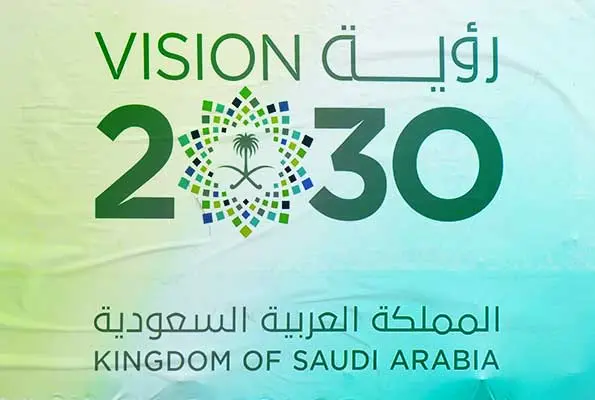Saudi Arabia’s ‘Vision 2030’ transition includes legal and judicial reform. Codifying laws has helped reassure international investors and enterprises about their prospects in the region by making the legal and judicial environment more predictable. Recent law revisions show Saudi Arabia’s desire to promote business while respecting sharia in its judicial and legal institutions.
Legal Codification
Saudi Arabia used uncodified Islamic law until recently, unlike other Gulf Cooperation Council (GCC) countries. This allowed judges to decide cases using Islamic jurisprudence and their morality.
Independent interpretation of religious texts led to inconsistent and unpredictable verdicts on similar matters, making it hard for lawyers to rely on judicial precedent.
Codification has been a priority since King Abdullah bin Abdulaziz invested nearly USD 2 billion in 2007 to ‘overhaul’ the Kingdom’s judicial system and “upgrade its court facilities.”
The religious class opposed codification because they saw it as an attempt to Westernise and weaken the legal system. Due to a lack of codification, judges’ discretion sometimes led to subjective findings, enabling controversial cases, especially domestic and family problems, to go viral.
After problematic cases, the Kingdom’s government often issued specific restrictions to deter future violations without codification. Examples include the 2013 Protection from Abuse Law and the 2018 Anti-Harassment Law.
Effects of Vision 2030
Since Vision 2030 was launched in 2016, codifying and revising the Saudi legal system has become increasingly urgent. To attract foreigners and investors who might be wary of its court, the monarchy needed a more extensive legal system like neighbouring Gulf countries. The 2018 Bankruptcy Law, one of the first Saudi investor-friendly regulations, aims to make doing business easier.
Following this, Crown Prince Mohammed bin Salman announced in 2021 a legal reform programme that includes codification and four new laws: the Personal Status Law, Civil Transactions Law, Penal Code for Discretionary Sanctions, and Law of Evidence. The Crown Prince stressed that the new laws are based on Sharia and consider international commitments, legal developments, and judicial procedures.
The much-anticipated Personal Status Law was passed on International Women’s Day, March 8, 2022. The law covers marriage, divorce, inheritance, child custody, and alimony, including women’s rights during and after divorce, which have been hotly discussed. Most new measures favour women, notably in custody proceedings.
The law codified tribal rituals such as Takafu Al-Nasab (lineal compatibility in marriage), allowing a married couple or their immediate family members to annul a marriage in court based on tribal incompatibility, which is sometimes harmful to couples.
The July 2022 Law of Evidence governs civil and commercial activities. This measure builds on King Abdullah’s 2007 legal reform initiative and potentially impacts litigation in the monarchy. Digital evidence like emails and media can be used in court.
The law also requires written contracts for monetary disputes over USD 26,600, encouraging the use of formal contracts and other documentation evidence to deter crime.
Contracts and financial transactions are covered under the June Civil Transaction Law, which takes effect in December. The comprehensive legislation, with over 700 pages, reassures investors and provides the transparency and legal underpinning for ‘Vision 2030’.
This is a major step toward a more predictable kingdom business climate. The final measure in Mohammed bin Salman’s 2021 package, the Penal Code for Discretionary Sanctions, will address criminal accusations.
Codification was carefully planned and executed. Each statute was reviewed and drafted by committees of senior officials, ministers, judges, academics, lawyers, and others. The procedure also involved many non-Saudi stakeholders.
Thus, Saudi Arabia’s legal system is codified, yet sharia is its foundation. Codification has brought the kingdom closer to a civil legal system like its neighbours.
Codification has been followed by other key initiatives spearheaded by the Ministry of Justice, a leading Saudi digitisation ministry. The 2021 Najiz app offers 140 services for Saudis and noncitizens (including business owners). Users can file cases, submit evidence, and file for divorce using the app, which unifies and digitises all judicial operations and transactions.
Since appointments and hearings are now online, the Ministry of Justice’s significant use of apps has sped up proceedings. Despite the drawbacks of eliminating in-person court proceedings, lawyers seem to like this move.
The legal reform has also reduced divorce in the monarchy. Since 2013, courts have had reconciliation offices and an independent Markaz Al-Mosalaha (Reconciliation Centre) with an online site and app to resolve family, spousal, and business conflicts. Before divorcing, couples with children must see the Reconciliation Centre.
Mediation is rooted in Sharia and Islamic culture, and the centre’s goal is to keep families stable and reduce the number of cases before judges, especially from newlyweds.
The Overall Outlook
Reforming the legal system will require judges and attorneys to be trained continuously to keep up with Saudi Arabia’s rapid changes. The Ministry of Justice’s new Judicial Training Centre has trained over 27,000 persons in the field.
Mohammed bin Salman stated in a September 2023 interview that judicial reform remains unfinished. The Crown Prince voiced dismay at a Saudi man’s death sentence for social media statements and agreed that the legal system needs more improvements.
Saudi Arabia’s recent legislative and judicial reform shows its desire to create a more business-friendly environment and improve individuals’ lives. Digitalisation has sped legal procedures, yet the fast pace of change often leaves the public, especially women, uninformed.
The final test of Saudi Arabia’s legal and judicial transformation will be judges’ compliance with the many new rules and changes.



